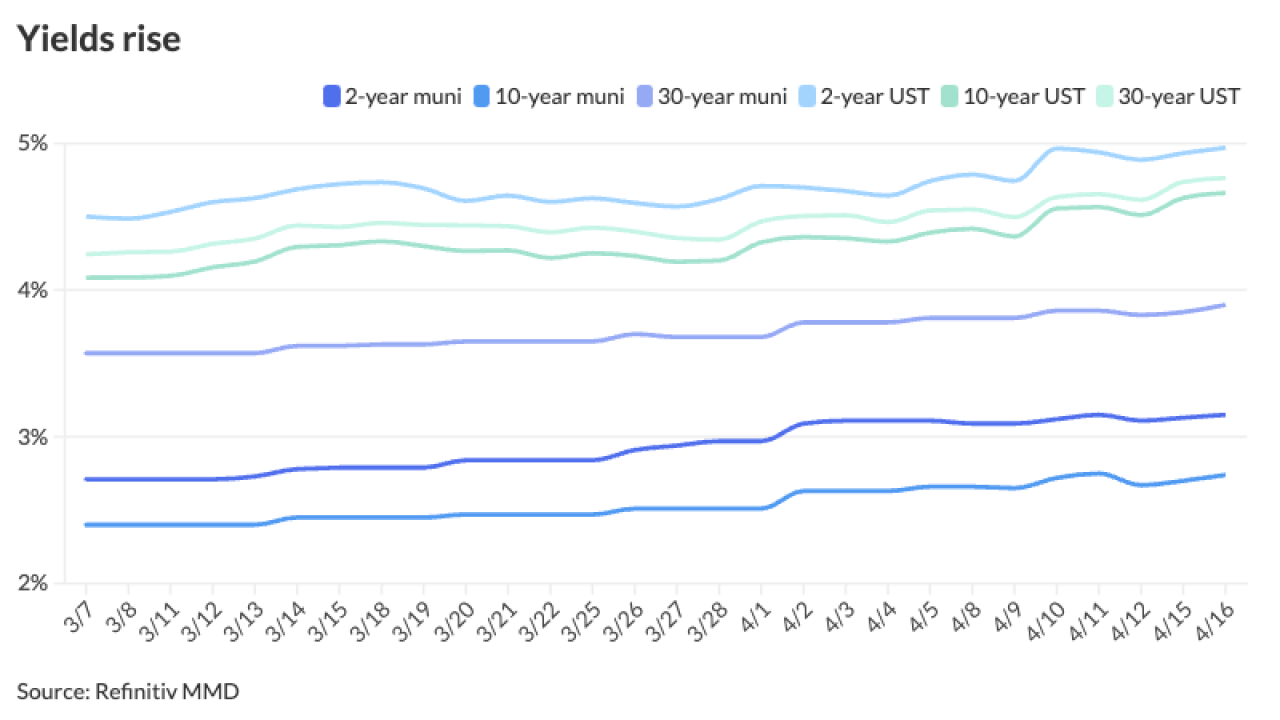WASHINGTON — Congress should eliminate the state and local tax deduction and offset the deduction's removal with a reduction in marginal tax rates, a report from The Heritage Foundation argued.
"Ending the federal subsidy of state and local taxes would help to improve the fiscal discipline and economic efficiency of state and local governments by forcing state and local taxpayers to bear the full burden of their governments' costs," Heritage senior policy analyst Rachel Greszler and senior statistician and research programmer Kevin Dayaratna wrote in the report, released Thursday.
Under federal tax law, individuals can deduct their state and local income and property taxes from federal income taxes. In recent years, individuals have been able to deduct their state and local sales taxes in lieu of deducting their state and local income taxes, according to the report.
The National Governors Association testified at a 2013 congressional hearing that ending the deduction could limit states' abilities to make policy changes to address uncontrollable economic pressures.
The authors of the Heritage report wrote that the deduction causes taxpayers in low-tax states to subsidize those in high-tax states. The costs of federal tax deductions are spread across all taxpayers in the form of higher federal tax rates, and the state and local tax deduction disproportionately benefits states with higher income and property taxes, according to the report.
"The state and local tax deduction effectively reduces states' marginal tax rates, allowing them to collect higher taxes while shifting some of the burden from their own taxpayers to taxpayers in other states," the authors wrote.
The report also said the deduction causes low-income taxpayers to subsidize high-income taxpayers. The deduction is only available for taxpayers that itemize their deductions, and those who earn more money are more likely to itemize.
The report's authors also said the deduction leaves the federal government with less control over its tax revenues. "If states raise taxes, individuals deduct more in state taxes and federal tax revenues decline," they wrote. "On the other hand, if states lower their taxes, individual deductions decline and federal tax revenues rise."
Heritage estimates that eliminating the deduction would increase federal income tax revenues by about 6.1%, or $1.3 trillion, from 2016 to 2025. The deduction should be replaced with a reduction in rates, because the purpose of eliminating it should be to make the tax code more efficient, rather than to raise more revenue, according to the report.
Doing away with the deduction could increase accountability in state governance, the authors wrote.
"Absent the deduction, taxes would be distributed more equitably according to services received," the researchers wrote. "When faced with the full cost of services received, taxpayers would likely demand fewer services and a more efficient allocation of their tax dollars, leading to a more optimal overall level of taxation.".
Also, if the deduction's elimination is offset with rate reductions that were neutral in terms of revenue and distribution, many taxpayers would have lower tax burdens, according to the report.
Former House Ways and Means Committee Chairman Dave Camp's tax reform bill, released last year, proposed eliminating the state and local tax deduction. The deduction for state and local sales taxes is a temporary provision that expired at the end of 2014, and in February, the Ways and Means Committee approved a bill that would make it permanent.





